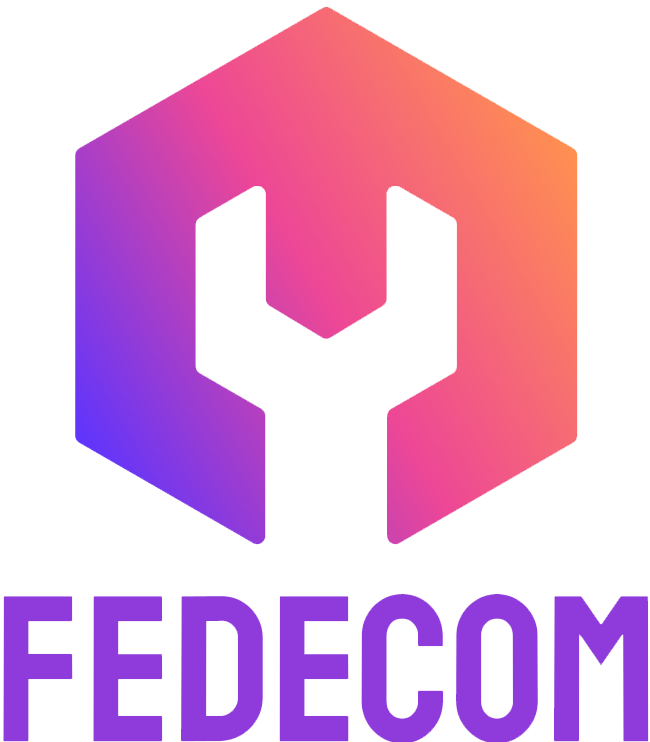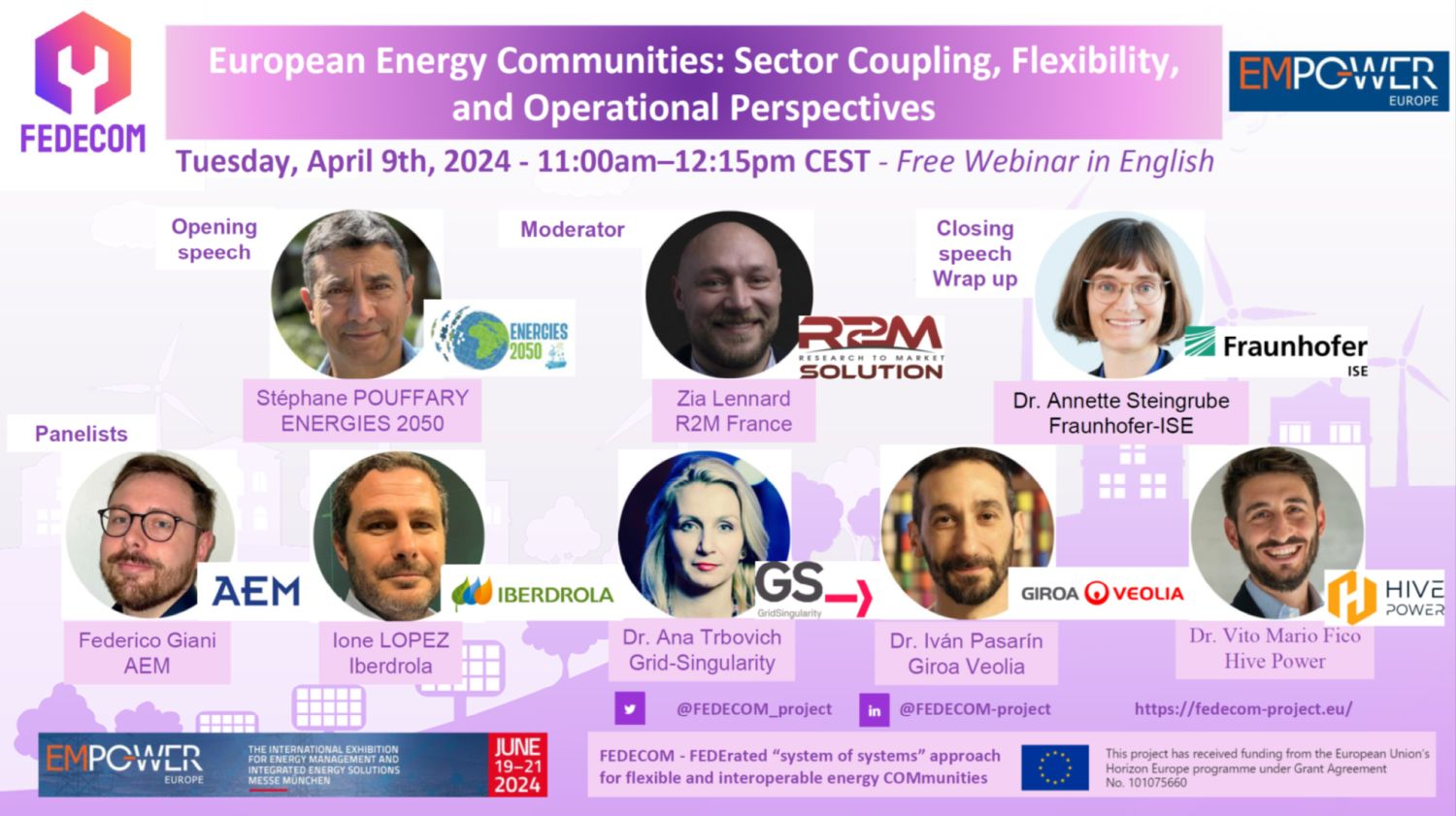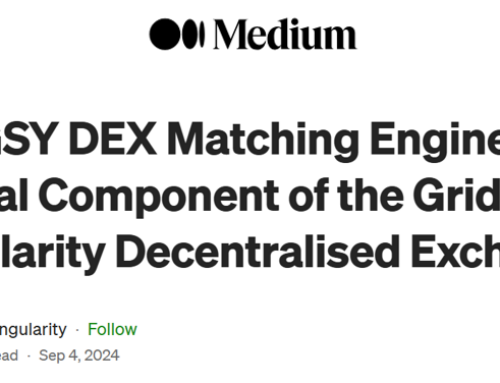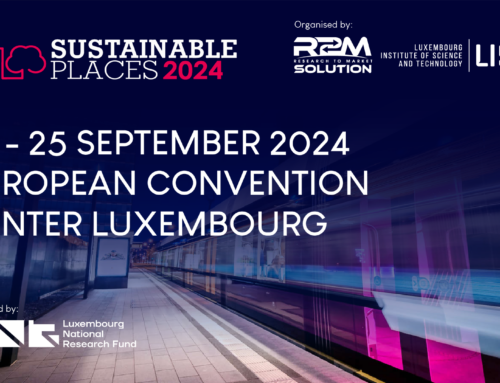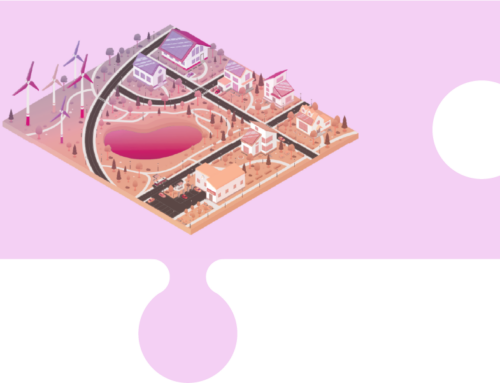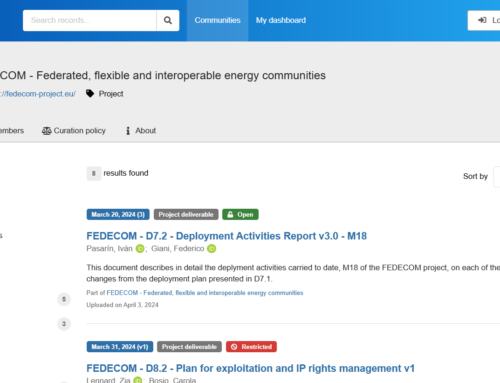FEDECOM project is pleased to invite you to attend the next webinar that we are co-organizing as part of the upcoming EM-Power Europe, 2024 event. This webinar will take place on Tuesday, April 9th, 2024 – 11:00am–12:15pm CEST (Webinar Language will be in English).
We will talk about “European Energy Communities: Sector Coupling, Flexibility, and Operational Perspectives”.
You can access the webinar presentation via https://www.em-power.eu/webinars/european-energy-communities?ref=m5f53a70436053c166b3950f6-s602e6615ca5e0d2f7c144ff3-t1708595735-c18003127
And the registration link via: https://register.gotowebinar.com/register/3702062684681432669
Energy communities, through which citizens can jointly own, democratically control, and self-consume local energy, are increasingly emerging. There is a clear shift toward a more decentralised, renewable-based energy production system to build a new, more inclusive energy system in which fair access to energy is guaranteed.
However, successfully transitioning energy communities’ encounters obstacles. How to integrate new technologies and foster greater energy flexibility to minimize energy consumption and enhance the resilience of our energy grid? And how to ensure that these transformations are financially viable?
- This webinar will address the following topics, encompassing but not limited to:
- Maximizing renewable energy integration for European energy communities.
- User-centric solutions for enhancing energy efficiency.
- Addressing regulatory, administrative, and financial challenges.
- Best practices for overcoming technical challenges in grid integration.
- Strategies to engage and empower domestic consumers in adopting energy-flexible behaviours.
- Ensuring secure and transparent sharing of information among stakeholders.
- Case studies and examples of energy community initiatives emphasizing the benefits of localized energy solutions.
The FEDECOM project (EU Horizon Europe program, https://fedecom-project.eu/) will be highlighted as a key reference during the webinar. The emphasise will be on its innovative approaches to optimize energy systems and promote sustainability across three pivotal pilots in Spain, Switzerland, and the Benelux region.
This webinar is part of a series of webinars organised on behalf of EM-Power Europe which is part of The smarter E Europe” the largest Energy Event in Europe drawing 2,469 exhibitors from across the globe and more than 106,000 international visitors from 166 countries in Munich this year in June. EM-Power Europe 2024 will be focusing on “Empowering Grids and Prosumers” and takes place in Munich,19-21 June, 2024 (exhibition), 18-19 June (conference). FEDECOM has been invited to lead and co-organised with Fraunhofer ISE this Webinar.
During the webinar participants can submit their questions to get them answered by the experts in the live Q&A. In addition, both the recording and the speakers’ presentations will be made available on The smarter E Digital (https://www.thesmartere.com/home) platform after the webinar and the FEDECOM website.
Find our panel:
Stéphane Pouffary – ENERGIES 2050 – Opening speech
Zia Lennard – R2M France – Moderator
Federico Giani – AEM
Ione Lopez – Iberdrola
Ana Trbovich – Grid Singularity
Vito Mario Fico – Hive Power
Iván Pasarín – Giroa-Veolia
Annette Steingrube – Fraunhofer ISE – Closing speech – Wrap up
Giroa-Veolia, Fraunhofer ISE, ENERGIES 2050, R2M France, AEM, Iberdrola, Grid Singularity and Hive Power are all FEDECOM consortium members.
Our target audiences are:
Grid operators (TSOs, DSOs), energy service companies (ESCOs), technology providers (of renewable energy sources and storage units, power-to-X assets, control and management tools, etc.), energy communities, municipalities, research institutes.
Our discussion themes will be:
⦁ How can European energy communities effectively overcome the challenges associated with the integration of renewable energy, considering issues of intermittency, infrastructure limitations, and the need to balance supply and demand fluctuations?
⦁ What strategies can be implemented to encourage user-centric solutions for enhancing energy efficiency, addressing issues such as resistance to behavioural change, technology adoption, and measuring the impact of user behaviour on energy efficiency?
⦁ What key steps and policies are needed to navigate and address the complex regulatory, administrative, and financial challenges hindering the progress of European energy communities, including regulatory frameworks, administrative burdens, and limited financial incentives?
⦁ How can European energy communities best navigate technical challenges in grid integration, including the compatibility of diverse technologies and the integration of decentralized sources, while simultaneously engaging and empowering domestic consumers in adopting energy-flexible behaviours?
